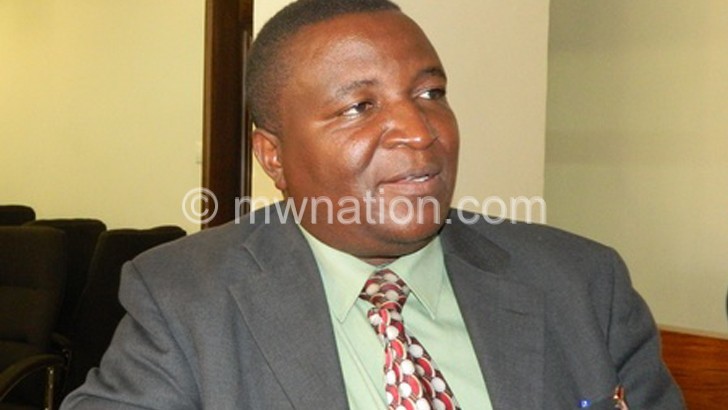Ministry caught off-guard on cholera response
Ministry of Health says the dry season cholera outbreak has caught them off-guard as the country lacks resources to deal with the situation.
The ministry’s spokesperson Adrian Chikumbe said yesterday in an interview that they are also facing challenges on importation of the cholera vaccine.

He said chlorine, blood disinfectants, rehydration fluids (drips) were also in short supply in the country which by Tuesday had cumulatively recorded 4 420 cases with 128 deaths.
Said Chikumbe: “We don’t have enough resources. Normally, we start planning around July or August because we expect rains to start around November or December, but this [outbreak] caught us off-guard because we did not have enough resources.
“So, the dry season cholera has hit us hard and we don’t have enough resources because it was not planned. We are getting support from Unicef, Red Cross and WHO. We need more chlorine, blood disinfectants and rehydration fluids [drips].”
The most affected districts are Nkhata Bay with 941 cases and 25 deaths, Blantyre with 635 cases and 25 deaths, Rumphi with 630 cases and 10 deaths and Nkhotakota with 540 cases and 22 deaths.
Chikumbe said the ministry is focusing on sensitising people to the importance of hygiene and sanitation.
He said: “The vaccine is just an additional measure not like we are bringing it to replace hygiene and sanitation. There is a single supplier of the vaccine globally and it’s not only Malawi that has been affected by dry season cholera.”
In Karonga, where more new cases are being recorded in places such as Chilumba, Nyungwe and Mlare, district health office (DHO) spokesperson Estery Nyirenda said inadequate sanitary facilities in fishing camps and trade activities are contributing factors.
By Tuesday, the district had recorded 427 cases and 10 deaths. Vaccines are yet to roll out in the district, where many people also still drink unsafe water.
Nyirenda said: “Resource constraints are there. In terms of staff, we had to deploy some nurses and clinicians to Chilumba to beef up the numbers. On things like tents, chlorine, and protective gear, we have them but they are not enough.”
Nkhata Bay DHO spokesperson Christopher Singini said they do not have enough chlorine and drips. He said the fight is being impeded by lack of adherence to personal hygiene.
Blantyre district director of health and social services Gift Kawalazira said people in densely populated areas such as Bangwe, Chilomoni and Chirimba continue using water from unsafe sources like shallow wells and streams.
He said: “Blantyre DHO is adequately resourced to respond to the pandemic in terms of medical resources and human resources. Short-term interventions include supply of safe water by BWB [Blantyre Water Board] using bowsers in affected areas.
“There is also suspension of collection of arrears in kiosks to enable them provide water to residents and treatment of water with chlorine.”
Meanwhile, Malawi Local Government Association (Malga) has called for an emergency meeting next week in Blantyre with the executive committee of Health Services Managers Network, a technical network under Malga comprising district directors of health and social services to discuss cholera and resource challenges.
Malga executive director Hadrod Mkandawire said the situation on cholera is exposing how weak Malawi’s health institutions are.
Last week, the Ministry of Health unveiled a six-point National Cholera Response Plan estimated to cost K21 billion to eradicate the disease within two months before the rains start.





